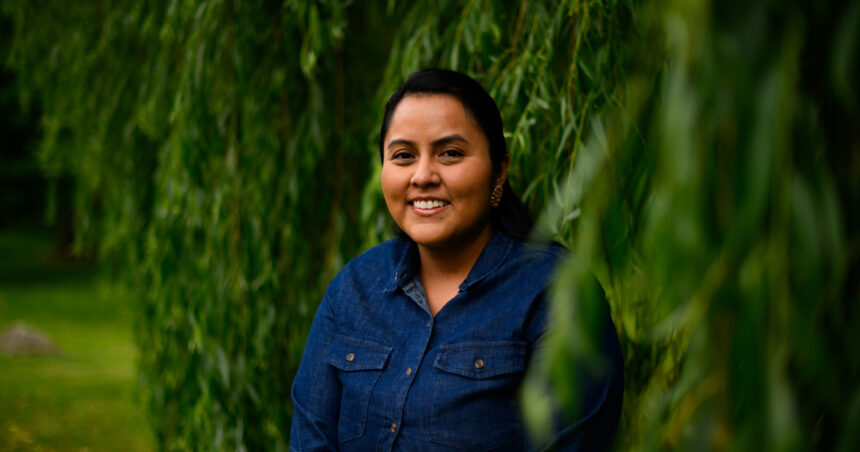I stepped out of my rental car to the sound of ravens calling overhead. The late autumn air in northern British Columbia carried the scent of pine and wood smoke as I made my way to meet Danya Carroll, a Nisga’a researcher whose groundbreaking work is changing how we understand the connection between land and health for Indigenous peoples.
“My grandmother used to say that when you walk on the land that knows your ancestors, your blood recognizes it,” Carroll told me as we sat in her small office at the University of Northern British Columbia. The walls were adorned with traditional art and family photos spanning generations. “That’s not just poetry—it’s increasingly supported by research.”
Carroll’s recently published study in the Canadian Medical Association Journal has documented what many Indigenous communities have long understood: access to traditional territories and land-based practices significantly improves both physical and mental health outcomes. Her team’s five-year study followed 340 participants across British Columbia, Alberta, and the Yukon, measuring everything from blood pressure and diabetes indicators to depression and anxiety scales.
The results were striking. Participants who engaged in regular land-based activities—from harvesting traditional foods to participating in cultural ceremonies—showed a 37% reduction in stress biomarkers and reported 42% higher scores on wellbeing assessments compared to those with limited land access.
“This isn’t simply about exercise or being outdoors,” Dr. Evan Thompson, a public health researcher at the University of Toronto who wasn’t involved in the study, explained when I called him for perspective. “The research suggests there’s something specific about cultural connection to ancestral lands that creates measurable health benefits.”
The findings come at a critical time. According to Statistics Canada, Indigenous peoples in Canada face health disparities including higher rates of chronic conditions and shorter life expectancies compared to non-Indigenous populations. A 2023 report from Health Canada showed that First Nations adults are nearly three times more likely to experience diabetes and have cardiovascular disease rates approximately 50% higher than the general population.
What makes Carroll’s research particularly valuable is how it challenges conventional approaches to Indigenous health policy. Rather than focusing exclusively on hospital access or medical interventions, her work suggests that land rights, environmental protection, and cultural continuity must be central to health planning.
“When I was in nursing school, we were taught to treat symptoms,” said Melissa Hill, a Mohawk nurse practitioner I spoke with who works at an Indigenous health center in Vancouver. “But Carroll’s research validates what our Elders have been saying—that healing happens when people can maintain their relationship with the land.”
I visited one of the communities participating in Carroll’s study, traveling five hours north of Prince George to a Dakelh (Carrier) First Nation territory. There, I met Robert Williams, a community health representative who helped coordinate local participation in the research.
Williams took me to the band’s newly established healing garden, where medicinal plants used for generations now grow alongside a modern community health facility. “Before the research team came, our knowledge was seen as secondary to Western medicine,” he said, kneeling to point out a patch of devil’s club, traditionally used to treat diabetes. “Now, even the doctors at the provincial clinic ask us about traditional approaches.”
The garden represents a small but significant shift in how health services are delivered. Rather than forcing community members to choose between traditional practices and modern healthcare, the integrated approach acknowledges the value of both.
This shift aligns with recommendations from the World Health Organization, which has increasingly emphasized the importance of traditional knowledge systems in achieving health equity. A 2022 WHO policy brief specifically noted that Indigenous peoples’ connection to land should be recognized as a social determinant of health.
Carroll’s research has already influenced provincial policy in British Columbia. The Ministry of Health recently announced a $12 million investment in land-based healing programs, citing her findings as part of the evidence base. These programs include supporting Indigenous communities in establishing cultural camps, harvesting initiatives, and language revitalization projects—all connected to traditional territories.
But significant challenges remain. Resource development projects, climate change impacts, and ongoing disputes over land rights threaten many of the landscapes central to these health-promoting activities.
“We’re in this bizarre situation where one branch of government funds land-based healing while another approves projects that make those same practices impossible,” Carroll noted, referencing recent approvals for mining operations in northern B.C.
The tension reflects a broader societal question about how we value different types of knowledge. Indigenous approaches to health have often been dismissed as unscientific despite their development over thousands of years of careful observation and practice.
“Western science is now catching up to what our knowledge keepers have always understood,” said Elder Mary Ghostkeeper when I visited her at a cultural camp near Lesser Slave Lake in Alberta. “The land isn’t just something we live on—it’s something we’re in relationship with.”
That relationship appears to be biologically significant. Carroll’s research included collecting data on immune function, inflammatory markers, and even gene expression patterns. Participants who reported stronger connections to traditional territories showed measurable differences in these biological indicators compared to those who were disconnected from their lands.
The implications extend beyond Indigenous communities. As urbanization increases globally and people of all backgrounds become more separated from natural environments, understanding how land connection influences health could inform broader public health strategies.
For Carroll, the research represents both professional achievement and personal healing. “My grandparents were in residential school,” she shared as we walked along a forest path near the university. “They weren’t allowed to practice their traditions or speak their language. This work isn’t just academic for me—it’s about recovering what was nearly lost.”
As the sun began to set, painting the clouds in shades of orange and purple, Carroll pointed to a stand of cedar trees. “That’s medicine,” she said simply. “Not just in what you can make from it, but in how it makes you feel when you stand here.”
In that moment, the research she’d described with scientific precision earlier became something I could feel—a quiet reminder that sometimes the most sophisticated healthcare doesn’t come in a pill bottle but in the relationship between people and the land that holds their history.






